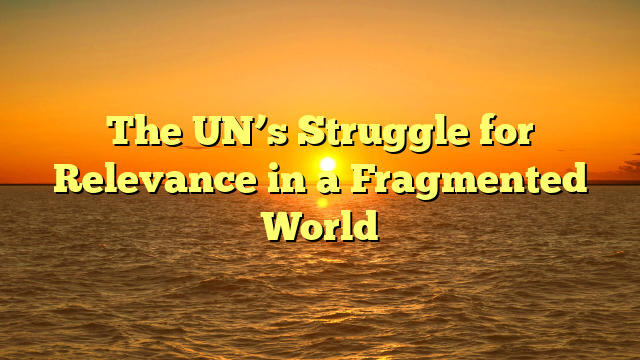The United Nations, once the symbol of global unity, faces growing questions about its effectiveness in 2025. From stalled climate initiatives to vetoed resolutions on conflict zones, the organization appears increasingly paralyzed situs judi slot online Naga169 by geopolitical rivalries.
The Security Council’s structure — dominated by the five permanent members — has come under intense scrutiny. Countries such as India, Brazil, and South Africa have renewed calls for reform, arguing that the UN no longer reflects modern power dynamics.
Secretary-General António Guterres has urged member states to prioritize “collective responsibility over national interest,” but progress remains slow.
The ongoing conflicts in Ukraine, Gaza, and Sudan highlight the UN’s limited ability to enforce resolutions. Even humanitarian aid operations face obstacles as funding dwindles and access is restricted by local authorities.
Observers note that while the UN continues to play a vital role in disaster relief and health programs, its political influence is waning. “We are witnessing a multipolar gridlock,” said Dr. Aisha Rahman, a political analyst based in Geneva. “The UN’s structure was built for a different era.”
Despite criticism, the organization remains indispensable for global coordination. Yet without structural reform, its authority risks further erosion — leaving the world without a functioning forum for peace and diplomacy.
